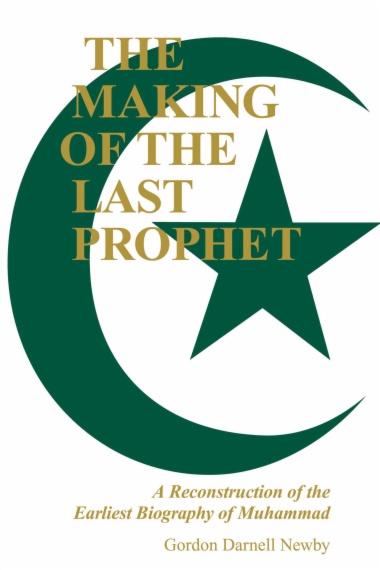The sacred biography of Muhammad has shaped Muslims' perceptions of the place of Islam in the religious history of the world and located the Islamic founder and prophet as the last of God's messengers. As Muslims established political control over ancient Jewish and Christian communities, they also claimed hegemony over the panorama of biblical prophets and holy men. In the eighth century, the author of the first complete biography of Muhammad set out a plan for a history of the world that culminated with the advent of Muhammad and the religion of Islam. The biography not only gave the details of Muhammad's life but also retold the stories of past prophets from an Islamic perspective. The Making of the Last Prophet is an examination of the reshaping and retelling of the biblical past to form the image of Muhammad as the "Seal" of the prophets of God. Through a translation of the reconstructed Arabic text, the sources, the form, and uses of the eighth-century biography are examined for the ways in which attitudes toward Muhammad were shaped in early Islam. The work particularly underscores the interplay of Jewish, Christian, and other Near Eastern religious ideals in the formation of Islam's notions of prophethood.
- Cover�������������������������������
- The Making of the LAST PROPHET����������������������������������������������������������������������������������������������������������
- Title�������������������������������
- Copyright�������������������������������������������
- Dedication����������������������������������������������
- CONTENTS����������������������������������������
- Preface�������������������������������������
- Introduction����������������������������������������������������
- The Author����������������������������������������������
- Historical Setting����������������������������������������������������������������������
- The Reconstruction����������������������������������������������������������������������
- Structure and Content of the Kitâb al-Mubtadaʾ
- Creation, Adam and Eve����������������������������������������������������������������������������������
- Noah and His Issue����������������������������������������������������������������������
- Hud�������������������������
- Salih�������������������������������
- Abraham, the Friend of God����������������������������������������������������������������������������������������������
- Lot�������������������������
- Job�������������������������
- Shuʿayb
- Joseph����������������������������������
- Moses�������������������������������
- Ezekiel�������������������������������������
- Elijah����������������������������������
- Elisha and Successors�������������������������������������������������������������������������������
- Samuel b. Bali����������������������������������������������������������
- David�������������������������������
- Solomon�������������������������������������
- Sheba�������������������������������
- Isaiah����������������������������������
- al-Khidr����������������������������������������
- Daniel, Hananiah, Azariah, Mishael, and Ezra����������������������������������������������������������������������������������������������������������������������������������������������������
- Alexander�������������������������������������������
- Zechariah and John����������������������������������������������������������������������
- The Family of ʿImran and Jesus the Son of Mary
- The Companions of the Cave����������������������������������������������������������������������������������������������
- Jonah�������������������������������
- The Three Messengers����������������������������������������������������������������������������
- Samson����������������������������������
- George����������������������������������
- Bibliography����������������������������������������������������
- Index�������������������������������
- Index of Quranic Citations����������������������������������������������������������������������������������������������

